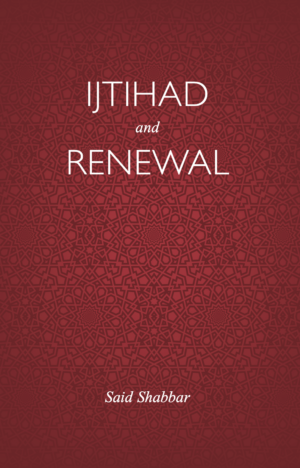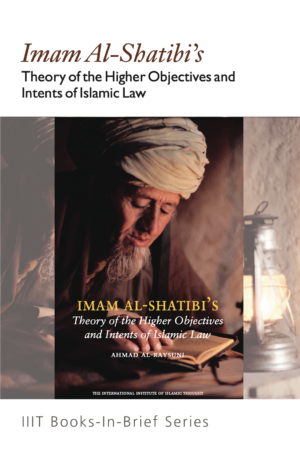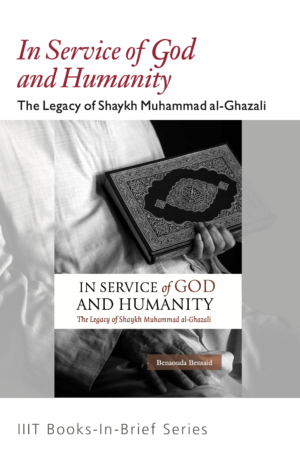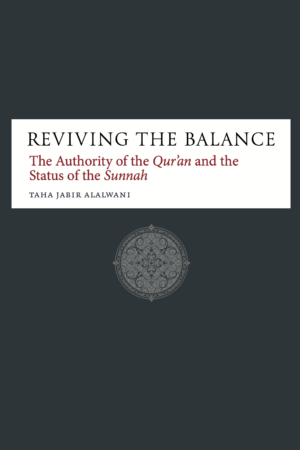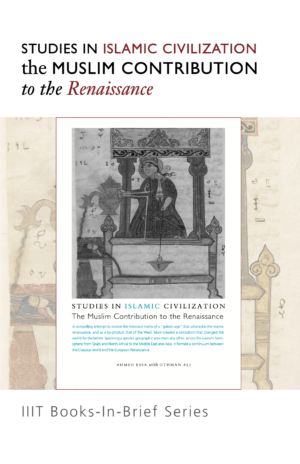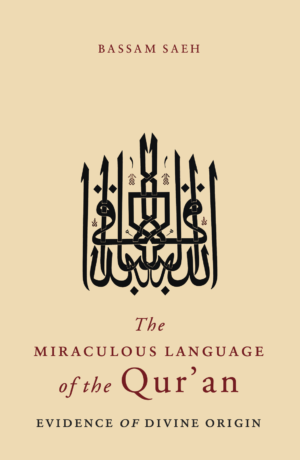-
Forensic Psychiatry in Islamic Jurisprudence
Free E-bookOverview
This is the first book in Forensic Psychiatry that focuses on the application of psychiatry to legal issues connected with Islamic jurisprudence. Holding a unique position amongst the world s religions in its containment of every aspect of human existence, it is openly natural for Islam to govern both the spiritual and legislative aspects of life. This work will appeal to both the general as well as the academic reader drawing important and wide-ranging conclusions relevant for many individuals and societies in the Islamic world.
-
Ibn Ashur: Treatise on Maqasid al-Shari’ah
Free E-bookOverview
Shaikh Muhammad al-Tahir ibn Ashur is the most renowned Zaytuna Imam and one of the great Islamic scholars of the 20th century. The publication of this translation of Shaikh Ibn Ashur’s Treatise on Maqasid al-Shari’ah is a breakthrough in studies on Islamic law in the English language. In this book, Ibn Ashur proposed Maqasid as a methodology for the renewal of the theory of Islamic law, which has not undergone any serious development since the era of the great imams. Ibn Ashur quite courageously also addressed the sensitive topic of the intents/Maqasid of Prophet Muhammad (SAAS) behind his actions and decisions. He introduced criteria to differentiate between the Prophetic traditions that were meant to be part of Islamic law and the Prophetic actions/ sayings that were meant to be for the sake of specific purposes such as political leadership, court judgment, friendly advice, and conflict resolution. But Ibn Ashur’s most significant contribution in this book has been the development of new Maqasid by coining new, contemporary, terminology that were never formulated in traditional usul alfiqh. For example, Ibn Ashur developed the theory of the ‘preservation of lineage’ into ‘the preservation of the family system’, the ‘protection of true belief’ into ‘freedom of beliefs’, etc. He also introduced the concepts of ‘orderliness’, ‘natural disposition’, ‘freedom’, ‘rights’, ‘civility’, and ‘equality’ as Maqasid in their own right, and upon which the whole Islamic law is based. This development opens great opportunities for Islamic law to address current and real challenges for Muslim societies and Muslim minorities.
-
Imam Al Shatibi’s Theory of the Higher Objectives and Intents of Islamic Law
Free E-bookOverview
With the end of the early Islamic period, Muslim scholars came to sense that a rift had begun to emerge between the teachings and principles of Islam and Muslims’ daily reality and practices. The most important means by which scholars sought to restore the intimate contact between Muslims and the Qur’an was to study the objectives of Islam, the causes behind Islamic legal rulings and the intentions and goals underlying the Shari’ah, or Islamic Law. They made it clear that every legal ruling in Islam has a function which it performs, an aim which it realizes, a cause, be it explicit or implicit, and an intention which it seeks to fulfill, and all of this in order to realize benefit to human beings or to ward off harm or corruption. They showed how these intentions, and higher objectives might at times be contained explicitly in the texts of the Qur’an and the Sunnah, while at other times, scholars might bring them to light by means of independent reasoning based on their understanding of the Qur’an and the Sunnah within a framework of time and space. This book represents a pioneering contribution presenting a comprehensive theory of the objectives of Islamic law in its various aspects, as well as a painstaking study of objectives-based thought as pioneered by the father of objectives-based jurisprudence, Imam Abu Ishaq al-Shatibi; in addition, the author presents us with an important study of al-Shatibi himself which offers a wealth of new, beneficial information about the life, thought and method of this venerable man.
-
In Service of God and Humanity: The Legacy of Shaykh Muhammad al-Ghazali
Free E-bookOverview
In his passionate devotion to the task of inviting others to Islam, Muhammad al-Ghazali (19171996) presented Muslims with a powerful critique of themselves, not only in their endemic failure to project Islam in the best, most reasoned light, but also in their betrayal of the Qur’an’s spiritual principles and the highest standards set by the Prophet Muhammad. This work analyzes al-Ghazali’s critique of du’at (those inviting to Islam) and the practice of da’wah work itself (the call to Islam). It also examines his methodology, various proposed solutions, and the juristic responses to his perspective. The evolution of al-Ghazali’s thought and the people and factors influencing him are key elements of the study. It is hard to conceive where the state of discourse on da’wah and Islamic reform would be without alGhazali’s outstanding contributions. The powerful stand he took on the importance of education, the significant weight he gave to a free society, his promotion of a decent standard of living for the poor, the qualities of moral and personal excellence he appealed for, and his compassionate, impassioned role as an educator, all these preserve al-Ghazali’s reputation, both in his own lifetime and for many generations to come, as one of the twentieth century’s most important Muslim intellectual thinkers and reformers. His legacy is founded on a lifetime of service.
-
Islam: Religion, Practice, Culture & World Order
Free E-bookOverview
In this study Al-Faruqi presents the meaning and message of Islam to the wider world community. Key elements of the faith are summarized and explained in an overall theme of seven parts consisting of 21 chapters. Yet the chapters represent far more than a simple description of Muslim peoples and orthodox practice. Al-Faruqi was a great thinker, formidable in logic, and relished intellectual engagement on every level, particularly when it came to Islam and other Faiths. And it is this unique reasoning process that is reflected in this work, Al-Faruqi’s signature contribution, which not only expounds on Islam as spiritual faith and action, but also on Islam the great experience.
-
Muslim Contributions to World Civilization
Free E-bookOverview
Islam’s brilliant contributions to science, art, and culture, are a timeless and precious heritage, which should be historically preserved for future generations. The great achievements of Muslim scholars are rarely if at all acknowledged in formal education, and today their identity, origins and impact remain largely obscure. This collection of papers aims to give readers a brief introduction to the intellectual history of Muslims and the contributions that eminent Muslim scholars have made in certain specific fields of knowledge including basic and applied physical and biological sciences, medicine, legal and political theories and practices, economic and financial concepts, models, and institutions, etc. The preservation of civilization necessitates a better understanding, sharing, and recognition of our common human heritage. Given today’s widespread negative stereotyping and falsely generated misunderstanding of Islam and Muslims, the publication of these papers on “Muslim Contributions to World Civilization” is vital to help repair the wrong that is being perpetrated and restore the historical truth, which is being distorted.
-
Qur’anic Terminology: A Linguistic and Semantic Analysis
Free E-bookOverview
There is no way to understand the Qur’an properly, or to elucidate as accurately as possible the meaning of its verses, without studying Qur’anic terminology and concepts. Taken together these sum up the universal truths of the Faith (the great moral code), not only animating the text and giving it incredible life, precision, and flexibility, but also enriching the communication of the Qur’anic message through their beautiful and comprehensive nature. This study aims to provide a broad glossary of key Qur’anic terms and set forth these terms’ meanings, both semantically and linguistically, within their Qur’anic context. The format is organized in such a way as to facilitate ease of under-standing, guiding the lay reader carefully and logically through the various nuances of usage and meaning. The meaning of a given Qur’anic term will vary depending on the manner and the context in which it is used, and on the issues and questions in relation to which reference is made to it, and just as a concept gives rise to a term, so also does the term and its usage act to shape the concept. These and other aspects of the Divine communication are mapped and explored, leaving us with a greater appreciation of the Qur’an’s depth and what makes it a linguistic and literary miracle.
-
Rethinking Muslim Woman & The Veil: Challenging Historical & Modern Stereotypes
Free E-bookOverview
A powerful critique of the popular western notion that the veil is a symbol of Muslim women’s oppression. In postulating a positive theory of the hijâb, the author challenges with great sophistication both the commonly held view of Muslim women being subjugated by men, as well as the liberal feminists’ who criticize the choice of women to cover themselves as ultimately unliberating.
The author argues that in a culture of consumerism, the hijâb can be experienced as a liberation from the tyranny of the beauty myth and the thin “ideal” woman.
In dispelling some widely held myths about Muslim women and the hijâb, the author introduces respectability to the voice of believing Muslim women, claiming that liberation and the equality of women are fundamental to Islam itself.
-
Reviving The Balance: The Authority of The Qur’an and The Status of The Sunnah
Free E-bookOverview
This work studies the position of the Sunnah in Islam and its fundamental relationship to the Qur’an. The author carefully examines the sensitive issue of the development of the oral and written traditions, the problems scholars faced despite painstaking work verifying the authenticity of reports, the character of narrators, etc. and the evergrowing complexity of a body of narratives that were making the simplicity and clarity of the Prophet’s life, words, and actions, a burgeoning maze of information. Taking the praiseworthy intention and effort to emulate the Prophet into account, the author nevertheless makes the case that once the Sunnah had been collected, the Muslim community began to neglect the Qur’an in favor of narrations of what the Prophet had done and said on the pretext that such narratives “contained” the Qur’an. Eventually they then abandoned the Sunnah narratives in favor of Islamic jurisprudence on the pretext that Islamic juristic texts tacitly included both the Qur’an and the Sunnah. It is with the aim of restoring the relationship between the two that this work has been written, that is, the Prophetic Sunnah must be tied inextricably to the Qur’an in a way that allows for no contradiction or conflict between the two, to avoid misapplication and abuse of hadith, and to meet the requirements and challenges of a new age.
-
STUDIES IN ISLAMIC CIVILIZATION the MUSLIM CONTRIBUTION to the Renaissance
Free E-bookOverview
Studies in Islamic Civilization draw upon the works of Western scholars to make the case that without the tremendous contribution of the Muslim world there would have been no Renaissance in Europe. For almost a thousand years Islam was arguably one of the leading civilizations of the world spanning a geographic area greater than any other.
It eliminated social distinctions between classes and races, made clear that people should enjoy the bounties of the earth provided they did not ignore morals and ethics, and rescued knowledge that would have been lost, if not forever, then at least for centuries. The genius of its scholars triggered the intellectual tradition of Europe and for over seven hundred years its language, Arabic, was the international language of science.
Strange then that its legacy lies largely ignored and buried in time. In the words of Aldous Huxley, Great is truth, but still greater, from a practical point of view, is silence about truth. By simply not mentioning certain subjects… propagandists have influenced opinion much more effectively than they could have by the most eloquent denunciations.
Studies in Islamic Civilization is a compelling attempt to redress this wrong and restore the historical truths of a golden age that ushered in the Islamic renaissance, and as a by-product of that of the West. In doing so it gives a bird s eye view of the achievements of a culture that at its height was considered the model of human progress and development.
-
The Miraculous Language of the Qur’an: Evidence of Divine Origin
Free E-bookOverview
This study illustrates why the language of the Qur’an is miraculous, unique, and evidence of divine authority. The author compares the language of the Qur’an with the language of preIslamic poetry, the Prophet’s words (hadith), and the language of the Arabs both past and present, to demonstrate that although the Qur’an was revealed in Arabic it was at the same time an Arabic which was entirely new. Original and early Muslim audiences viewed this as miraculous and responded to the Qur’an’s words, sounds, rhythms, etc. in a manner consistent with a deeper appreciation of its beauty and majesty which modern ears, trained by familiarity, and despite being surrounded by all manner of dictionaries and studies, are at a loss to capture. The author attempts to remove this veil and present the Qur’an to readers as if hearing it for the first time, to bring to life some of this wonder. In doing so he guides readers to appreciate the beauty of the Qur’an, to become more immersed in it, and to have a clearer understanding of its structure and flow. Devoting special attention to Surah Al Muddaththir (Chapter 74), to underpin his analysis, Saeh thus brings the Revelation to life, to demonstrate that each surah has distinct features and characteristics that make it stand out uniquely within the design and sweep of the whole.




